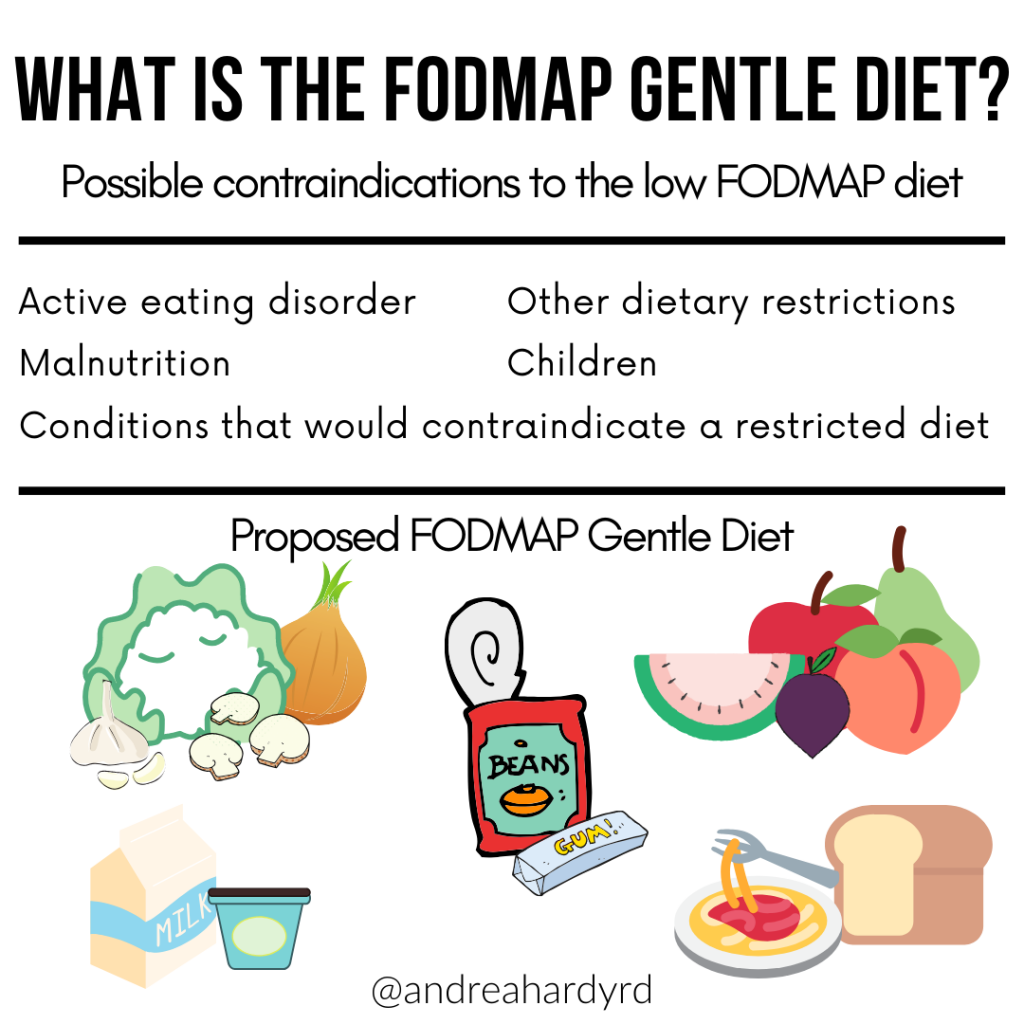Did you know that the low FODMAP diet is not suitable for everyone? On Instagram @AndreaHardyRD, I talk all about the FODMAP gentle diet which can be used as a gentle alternative to the traditional low FODMAP diet.
Hands up if you’ve heard of the ‘FODMAP gentle diet’????????♀️
In a recent paper discussing controversies and realities of the low FODMAP diet (doi:10.1111/jgh.14650) – researchers proposed a ‘FODMAP gentle’ diet based on a combination of very high FODMAP foods, and the ‘NICE’ guidelines for certain patient populations.
AND! I think it’s great.
The low FODMAP diet is restrictive, difficult, and frankly, often leads to a lot of disordered eating behaviour and fear of food. At our most recent low FODMAP meet up, participants all agreed – the low FODMAP diet has had major impacts on how they related to and behave around food.
In fact, after about a year of practice in IBS, I realized – the low FODMAP diet is NOT appropriate for a LOT of people, and that a modified approach is often better suited. (which is also in line with what @monashfodmap teaches their certified dietitians).
This recent paper put together a proposal for what would be considered a ‘FODMAP gentle’ diet – but I actually suggest practitioners take it one step further and TAILOR the approach to a patients eating behaviours, combining NICE approaches and a ‘FODMAP gentle’ diet.
Pro Tips:
1) Always screen patients for disordered eating behaviour. I take it 1 step further than screening tools and ask patients about their relationship with food.
2) What sort of NICE guideline approaches can you apply first? (fibre mods, meal timing & spacing, alcohol, fluid etc.)
3) Based on a patients diet history, which FODMAP foods do they consume the most? can you offer suggestions for swaps? Is there 1 or 2 categories that may be practical to focus on first?
The link in bio is for our IBS basics post written by our RD, Jen. Not all patients require a strict low FODMAP diet – take a look to learn more @andreahardyrd


Recent Comments